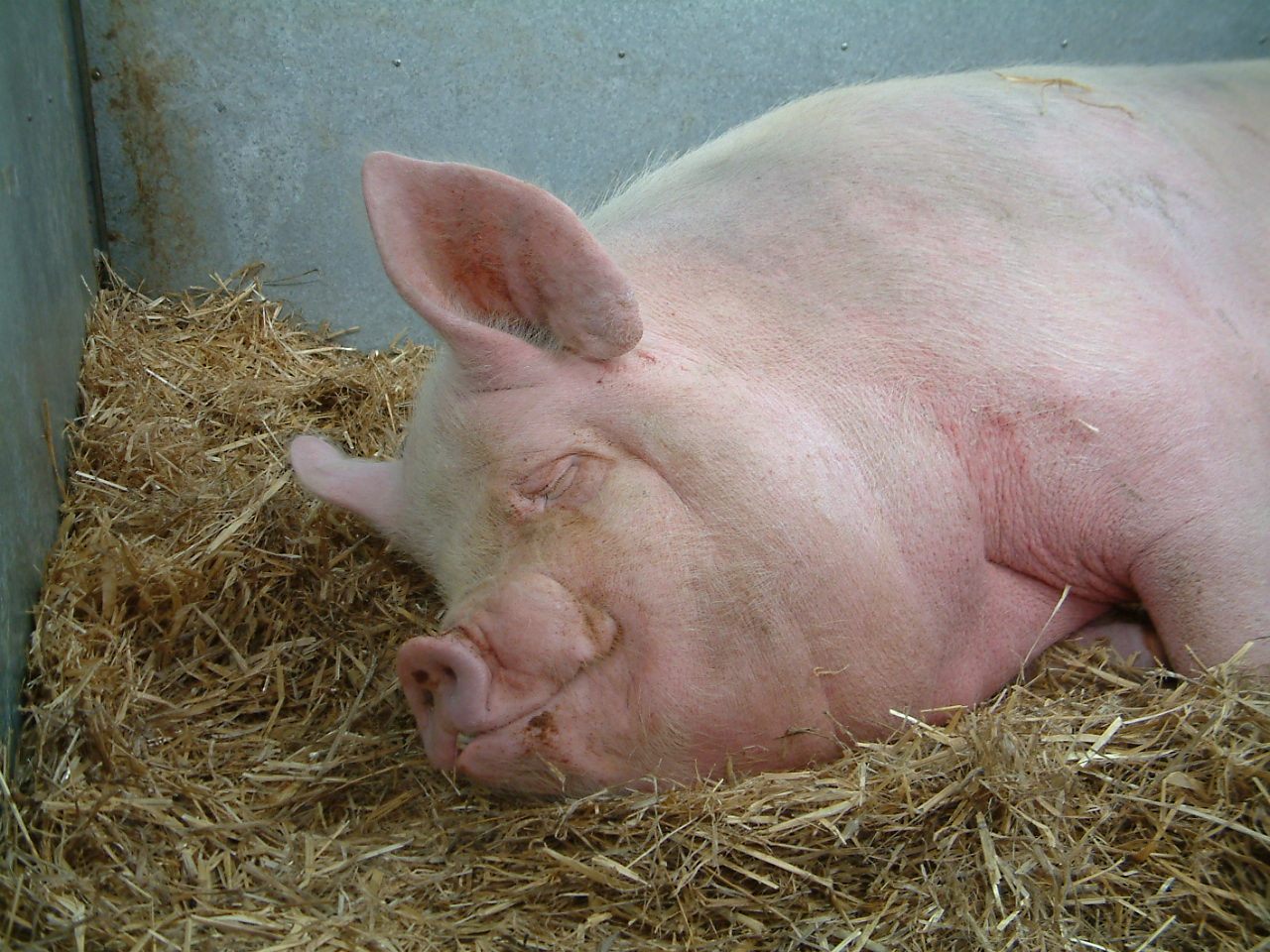Scientists Are Trying to Grow Human Organs Inside of Pigs
Welcome to the future.

(Photo: National Rural Knowledge Exchange/CC BY 2.0)
California scientists have lately been working on something that has both alarmed the scientific community and provided others with great hope: chimeras, or pig embryos injected with human genes, in an attempt to grow human organs in an otherwise normal pig body.
The goal? A future where human organ donation is a thing of the past. Having the ability to make new, young, healthy organs on demand would mean no more waiting for a new liver or heart.
But we’re not quite there yet, and some have questioned whether we’ll ever be. The current research is in a very early stage, and the scientists involved told the BBC that they are, for now, just trying to find reliable ways of getting the first embryos to grow normally.
“Our hope is that this pig embryo will develop normally but the pancreas will be made almost exclusively out of human cells and could be compatible with a patient for transplantation,” Pablo Ross, a scientist leading the research, told the BBC.
The pig embryos are designed precisely, with, in the latest experiments, the genes for creating the animal’s pancreas edited out, with human genes capable of creating any organ in the body added in. The embryos were allowed to develop for 28 days inside a healthy sow, at which point scientists terminated the pregnancy. They are now analyzing the tissue.
The work has been controversial, not only because scientists just aren’t sure what could happen. Could the human genes affect other parts of the pig’s body, like the brain? We don’t know, because this kind of experiment hasn’t been successfully tried before. (The National Institutes of Health has put a moratorium on funding such research.)
Whatever the outcome of the research, human organs will remain in heavy demand. Some 128,000 people are currently on waiting lists in the U.S. for transplants, according to the U.S. Department of Health and Human Services, compared to over 90,000 just 10 years ago.

















Follow us on Twitter to get the latest on the world's hidden wonders.
Like us on Facebook to get the latest on the world's hidden wonders.
Follow us on Twitter Like us on Facebook